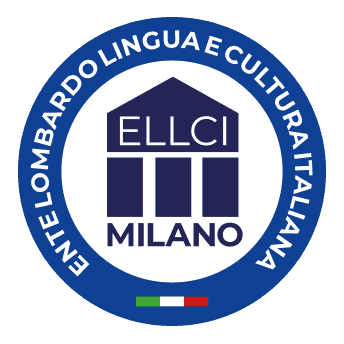
10 Ago
Top best Italian book to learn the language | ELLCI
When you want to learn a foreign language, you have to consider various skills: reading, writing, conversation, translation … for all this it is crucial to memorize a new vocabulary.
How to train your memory to get the most out of our study?
In general, it is easier to memorize something when we are dealing with topics that interest us. For those who love reading, reading a good book with the right concentration can be the right incentive to improve your vocabulary and get the most from reading.
We asked our Italian teachers to suggest their favorite Italian literature books, who better than them? Here they are subdivided by linguistic proficiency.
Best Italian books to learn the language suggested by our teachers
A1 / A2
Pasta per due, Giovanni Ducci
A book about the misunderstandings and common experiences of those living in a foreign country for their first time. A fun and original story that helps to reflect on the most curious and peculiar expressions of the Italian language thanks to the included exercises.
We read it in class and it was greatly appreciated. The audio CD is useful for individual reading.
Marianna
Delitto In Crociera, Valentina Mapelli
A murder mistery set on a Mediterranean cruise. Cultural notes and exercises of comprehension, grammar and vocabulary at the end of each chapter facilitate reading and also allow for a practical and immediate review. It includes audio files, offering a great support for pronunciation and memorisation.
Maria
Esco a fare due passi, Fabio Volo
I recommend Fabio Volo’s books in general for his colloquial style, everyday use expressions, and easy vocabulary for an elementary level. Esco a fare due passi is the first novel of Volo and it was a huge public success. It’s the story of a guy around thirty years and of his relationship with women and the working world. A light and pleasant reading.
Anna
B1 / B2
101 cose da fare a Milano almeno una volta nella vita, Micol Arianna Beltramini.
A sort of tour guide, history book, collection of real stories and legends. Above all, it is a book about the soul of Milan, the one that remains hidden behind the masquerade of happy hours, fashion and design. I recommend this book to those who live in Milan for long periods but have few opportunities to enjoy the city. A book to read at the park while eating an ice cream and to get lost with in the lesser-known streets of the city.
Sabrina
Margherita Dolcevita, Stefano Benni.
I often recommend Margherita Dolcevita to my students because Benni is ironic and intelligent, and because he plays a lot with words (stimulating reflection and allowing to expand the vocabulary). In addition, there is that touch of surrealism that makes its novels special, almost unique in the contemporary Italian literary landscape.
Roberto
Olive comprese, Andrea Vitali
This story set in Bellano (one of the destinations of our excursions) tells irreverently the life of a town on Lake Como under facism. The protagonists are 4 guys, but the novel is full of astonishing and picturesque characters.
I generally recommend all of Vitali’s books for their mixed irony, culture and dialect. “Olive comprese” is the first I read. When I realized what the olives were, I giggled so hard.
Dalila
C1 / C2
Palline di Pane, Paola Mastrocola
Emilia is a forty-year-old photographer with a husband working in India and two kids. Every summer she goes to Sardinia, helped by a Brazilian babysitter who doesn’t speak a word of Italian.
The book retraces the woman’s reflections and the beach chit chat, in a mix of paradoxical situations and exasperated everyday life. Ironic, light, but not too much, the book is a pleasing, at times snappy reading. Recommended for a C1 level, able to read between rows.
Irma
Lessico Familiare, Natalia Ginzburg
The novel tells the story of the writer’s family between the thirties and fifties of the twentieth century. Set in Turin, it describes the daily life of the Levi family through habits, behaviors and above all language.
I suggest it precisely for the liveliness of the lexicon and the importance of the words in the family history.
Brunella
L’Amica Geniale, Elena Ferrante
It is the first novel of a series consisting of four books. In fact, I suggest the whole saga because besides it has been highly acclaimed both by the critics as well as the public, the novels cover Italian history from the late 1950s to nowadays.
The tale is fascinating and engaging: from the point of view of two friends of different fortunes, it is possible to grasp the facets of contemporary Italy.
Silvia
What is your favorite, do you have other suggestions? Write it in the comments.
Happy Reading!
